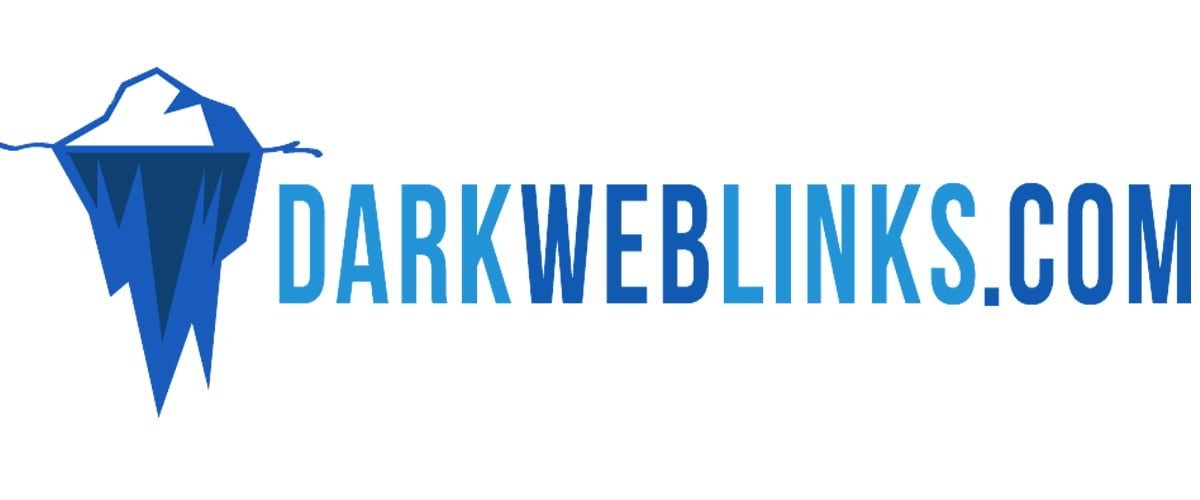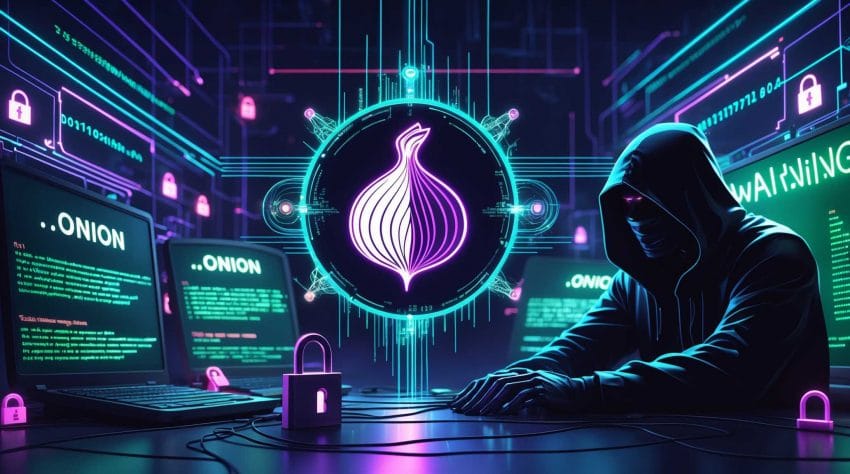🔍 Why the Best Dark Web Search Engines in 2025 Matter
Most people think of Google, Bing, or DuckDuckGo when they hear “search engine.” These giants index billions of web pages, but they only cover the surface web. The dark web is different. Its sites use .onion domains and stay hidden from normal crawlers. That’s why the best dark web search engines in 2025 matter so much.
The dark web hosts forums, marketplaces, research hubs, and privacy communities. Without proper tools, finding working dark web links feels almost impossible. Onion sites often change addresses to avoid takedowns. A good search engine helps users track these changes and reach the right sites.
Unlike random link lists, a search engine gives structure and updates. In 2025, trusted names like Ahmia, Haystak, and Torch guide users to real onion sites. Many of these tools also filter scams and block known malicious portals. That makes them useful for journalists, researchers, and anyone concerned about privacy.
The value isn’t just in convenience. Fake dark web sites and phishing traps are everywhere. Clicking the wrong link can lead to malware, fraud, or identity theft. Reliable search engines reduce this risk. They give users a safer entry point into the hidden web.
In short, the best dark web search engines in 2025 matter because they do two things:
Help people find genuine onion links.
Keep users safe from fake sites and dangerous traps.
Exploring the dark web without them is like driving without headlights—you may still move forward, but you risk crashing at every turn.

🌐 What Makes Dark Web Search Engines Different from Normal Search?
At first glance, a dark web search engine looks similar to the ones we use every day. You type in a query, and it returns results. But the way it works is very different. Traditional search engines like Google crawl billions of public pages and rank them with advanced algorithms. They aim for speed, relevance, and advertising. Dark web search engines serve a very different purpose.
On the dark web, websites are not indexed by Google or Bing. They use .onion addresses, which are hidden by design. These addresses are long, random strings of characters, and they change often. Without a search engine built for this environment, it is almost impossible to find working links. That is where specialized dark web search engines come in. They focus on onion sites, update their indexes more frequently, and sometimes block known scam or phishing portals.
Another key difference is anonymity. Normal search engines collect data to improve results and sell ads. They log queries, track users, and use this information to build profiles. Dark web search engines, on the other hand, are built with privacy in mind. Many of them avoid tracking and allow you to search without leaving a trace. This makes them more aligned with the goals of the Tor network itself.
Security also plays a big role. On the surface web, a broken link is only an inconvenience. On the dark web, a fake link can lead to malware or fraud. The best dark web search engines in 2025 try to reduce this risk by filtering harmful results. This does not mean they are perfect, but they offer a safer experience than clicking random links.
⚠️ Are Dark Web Links Safe to Use in 2025?
One of the biggest concerns for anyone exploring the hidden internet is safety. The dark web has always carried a reputation for risk, and in 2025 that has not changed. While many onion sites exist for privacy, research, or free speech, countless others are filled with scams, malware, and fake portals. Clicking the wrong link can compromise your device or even expose your identity.
The truth is that dark web links are not safe by default. Some directories, like clones of the Hidden Wiki, may contain outdated or malicious addresses. We recently explained the dangers of these clones in our guide on The Hidden Wiki in 2025 – Real Link or Dangerous Clone? If you rely on such lists without double-checking, you may end up on harmful sites.
Another common risk comes from random search results or shared onion links. Not all search engines filter their indexes, and many allow fake marketplaces or phishing sites to slip through. Once inside, you could be asked to download suspicious files or reveal sensitive information. Malware is still one of the most effective tools used by criminals on the dark web, and it often hides behind links that appear legitimate.
That said, not every dark web link is dangerous. There are legitimate resources, forums, and research portals. The safest way to reach them is through trusted search engines and updated directories. By combining these tools with Tor and a VPN, users can reduce exposure to threats.
In 2025, the answer is simple: dark web links are only as safe as the source you find them from. Stick with the best dark web search engines and verified directories, and you greatly improve your chances of staying secure.
🛡️ How to Access Dark Web Search Engines Safely (Tor + VPN Guide)
Before using any dark web search engine, safety should come first. The hidden web can expose you to malicious sites, so preparing your connection is essential. The two most reliable tools are the Tor Browser and a VPN.
The Tor Browser is the gateway to onion sites. It routes your traffic through multiple relays, making it extremely difficult to trace your activity. Without Tor, you cannot reach .onion addresses at all. Installing Tor is free and simple, but it is not enough on its own. For extra protection, many experts recommend combining Tor with a VPN. A VPN hides your real IP address from your internet provider and adds another layer of encryption. When used together, Tor and a VPN make it far harder for anyone to monitor your browsing.

Once you are connected, you can safely explore the best dark web search engines in 2025. These include trusted platforms such as Ahmia, Haystak, and Torch. Using them through Tor ensures that your traffic stays anonymous, while a VPN shields your connection from prying eyes. This setup is especially important if you live in a region where accessing the dark web could attract unwanted attention.
It is also smart to avoid logging into personal accounts while using Tor. Keep your activity separate from your normal browsing. Many users even choose dedicated devices or virtual machines to explore the dark web, reducing the risk of malware infecting their main systems. For more guidance, our detailed post on How to Visit the Top Dark Web Sites in 2025 explains practical steps you can take.
In short, accessing dark web search engines safely is all about preparation. With Tor, a VPN, and good browsing habits, you can explore onion sites without putting your identity or device at risk.
🔎 Ahmia – One of the Best Dark Web Search Engines in 2025
Among all the search engines available on the dark web, Ahmia stands out as one of the most trusted. It has been active for years and continues to grow stronger in 2025. Unlike random link lists or unknown search tools, Ahmia has built a reputation for being transparent and reliable. It indexes onion sites while filtering out harmful and illegal content, which makes it a safer option for users.
Ahmia’s design is simple, but that is part of its appeal. Users can search for onion links just as they would on Google, yet without the tracking and data collection that mainstream engines use. Results appear quickly, and the database is updated regularly. This constant updating matters because onion links often change, disappear, or resurface under new addresses. A search engine that adapts quickly ensures users find working sites instead of broken or dangerous ones.
Another reason people trust Ahmia is its connection to researchers and the privacy community. It does not promote markets or scams, which makes it different from engines that focus on questionable content. Instead, it offers a cleaner, safer entry point for those who want to explore dark web sites responsibly. Journalists, students, and privacy advocates often recommend Ahmia because of its balance between accessibility and safety.
Still, it is important to remember that no search engine is perfect. Even with Ahmia’s filters, there is always a chance of finding fake or malicious links. This is why users must stay cautious and combine Ahmia with safe browsing practices. For readers new to the hidden internet, our guide on 10 Things You Should Never Do on the Dark Web (2025 Edition) is a good reminder of how to stay safe.

In 2025, Ahmia remains one of the best ways to access real onion sites while reducing unnecessary risks.
🌟 Haystak – Premium Dark Web Search Engine with Massive Index
Another strong name in the world of dark web search engines is Haystak. In 2025, it remains one of the largest and most advanced options for finding onion sites. Unlike many free tools, Haystak offers both a free version and a premium subscription. The premium service unlocks advanced features such as historical indexing, refined filters, and access to a larger collection of results.
What makes Haystak unique is the size of its database. It has indexed billions of dark web pages, giving it a reputation as the “Google of the dark web.” For users who want more than just a handful of basic links, this scale is a major advantage. It allows researchers, cybersecurity experts, and journalists to dig deeper and uncover information that would otherwise remain hidden.
The interface is simple and clean. Even beginners can use it without much effort. You enter a query, and the engine returns onion links with clear descriptions. This makes it much easier to avoid clicking random or suspicious links. The premium version also lets you search through old snapshots of sites that may no longer exist, which is useful for investigations or academic work.
Haystak also has a strong focus on privacy. It does not require personal information to use, and it works smoothly inside the Tor network. However, it is important to remember that even the best dark web search engines cannot fully protect you from malicious sites.

For those who want to explore it further, the official website of Haystak is accessible directly through Tor. In short, Haystak is a powerhouse. Its vast index and premium features make it one of the best tools for anyone serious about exploring the dark web in 2025.
🚀 Phobos – A Growing Dark Web Search Engine in 2025
While names like Ahmia and Torch dominate conversations about dark web search engines, Phobos has been quietly gaining attention. In 2025, it is emerging as one of the fastest-growing options for people who want a fresh alternative to older engines. Its design is modern, lightweight, and focused on speed, which sets it apart from many of the more established tools.
Phobos is known for indexing new onion sites quickly. The dark web changes constantly, with sites going offline and new ones appearing almost every day. Many users find that Phobos catches these changes faster than some older engines. This makes it especially useful for those who want to explore current communities, forums, and projects without relying on outdated directories.
Another strength of Phobos is its cleaner presentation. Results appear in a simple layout that avoids unnecessary clutter. For newcomers, this simplicity reduces confusion and makes browsing feel safer. Although it does not have the same massive index as Haystak, Phobos balances smaller size with reliability and ease of use.
Privacy remains central to its design. Like most dark web search engines, Phobos avoids tracking and does not log personal information. It provides a straightforward experience that aligns with the principles of anonymity and security on the dark web. This commitment to privacy is one reason it has attracted positive feedback from researchers and regular users alike.
Phobos may not yet be the biggest name in the dark web search world, but it is quickly building trust. As it continues to grow in 2025, it is proving itself as a valuable tool for anyone who wants to discover new onion sites safely and efficiently.
🔦 Torch – The Oldest Search Engine Still Running on the Dark Web
When it comes to history, Torch holds a special place among dark web search engines. It is often described as the oldest search engine on the dark web, and even in 2025, it remains active and widely used. Its long presence has made it one of the most recognized names for anyone who has spent time exploring onion sites.
Torch is known for its massive index. Over the years, it has gathered millions of onion links and continues to expand. This makes it one of the most reliable tools for discovering a wide variety of content. Whether someone is looking for forums, marketplaces, or simple community pages, Torch often delivers a broad set of results. The sheer scale of its database is what has helped it maintain relevance despite competition from newer engines.
The design of Torch is simple and direct. It does not try to be flashy, and that minimal approach works well in the Tor environment. Results load quickly, and users can jump between categories without much difficulty. While it does not have the premium features of engines like Haystak, its strength lies in accessibility. Anyone with the Tor browser can open Torch and begin searching instantly.

Like all dark web tools, Torch is not perfect. The large index means it can also include inactive or unsafe sites. This is why users still need to approach results with caution. However, its consistency and long track record make it a favorite for many.
In 2025, Torch continues to stand as proof that even the oldest dark web search engines can still play an important role. Its combination of size, speed, and history ensures it remains a trusted entry point for exploring onion links.
🛒 Kilos – A Marketplace-Oriented Search Tool (Use with Caution)
Among the many dark web search engines, Kilos stands out for its unique focus. Unlike general tools such as Ahmia or Torch, Kilos was built with marketplaces in mind. In 2025, it remains one of the most popular engines for users seeking to search specifically for vendors, products, and services on onion sites.
The name Kilos itself reflects this purpose. It is designed for indexing markets that deal with drugs, digital goods, and other restricted items. While this makes it powerful for certain users, it also carries significant risks. Many of the links it provides lead directly to illegal markets. Entering these spaces can expose visitors to scams, law enforcement monitoring, or worse. Because of this, Kilos must be approached with extreme caution.
From a technical standpoint, Kilos is impressive. It can handle advanced queries, making it possible to filter searches by vendor, product, or even customer feedback. This level of detail is rare among dark web search engines. For researchers and cybersecurity analysts, these features provide insight into how underground markets evolve and operate.
However, the dangers cannot be overstated. Unlike other engines that try to block harmful or illegal content, Kilos leans into it. Users who are simply curious about the dark web may find themselves in risky situations without realizing it. Even with Tor and a VPN, the threat of phishing, malware, and scams remains very high.
In 2025, Kilos still plays a major role in the hidden economy. But for the average user, it is not the best choice for safe exploration. It serves as a reminder that while dark web search engines can be powerful tools, they are not all created with safety in mind. With Kilos, awareness and caution are more important than ever.
🕵️ How to Recognize Fake Onion Links and Scam Search Engines
One of the biggest dangers on the dark web is the presence of fake search engines and cloned onion links. In 2025, these traps are more common than ever. They exist to trick users into clicking malicious links, stealing personal data, or downloading malware. Learning how to recognize them is essential for anyone who wants to explore safely.
Fake search engines usually give themselves away with poor design or broken functions. Many display endless ads, push suspicious downloads, or return results that seem irrelevant. If a search engine looks messy, slow, or overloaded with pop-ups, it is often a sign that it cannot be trusted. A real dark web search engine focuses on clean results and basic functionality.
Cloned onion links can be even harder to spot. At first glance, they may look identical to the original site. The difference often lies in a single character within the address. A trusted site might use a long, complex string, while the fake version swaps out one letter or number. Clicking the wrong version can redirect you to phishing pages or malware. That is why checking the exact address before visiting is so important.

Another warning sign is constant redirection. If clicking on one link suddenly opens several other pages, you are likely on a fake site. Real dark web engines and onion sites load directly without such tricks. Frequent downtime or sites that never connect are also indicators of unreliable sources.
The best defense is caution. Always double-check onion addresses, avoid unknown engines, and never download files you do not trust. The dark web rewards patience, but it punishes carelessness. Spotting fakes before you interact with them keeps your identity safe and your system secure.
📖 Dark Web Search Engines vs. Onion Link Lists like the Hidden Wiki
When people first try to explore the dark web, they often start with link lists such as the Hidden Wiki. These lists provide collections of onion addresses organized by category. They are simple to use and give newcomers a direct way to reach dark web sites. However, in 2025, relying only on these lists can be risky. Many are outdated or filled with dangerous clones.
Search engines, on the other hand, work differently. Instead of giving one static list, they index onion sites dynamically. Engines like Ahmia and Torch update their results regularly, which means you are more likely to find working and safe links. They also give you more choices. If one site disappears, the search engine can usually suggest alternatives. A static list cannot do that.
Another key difference is control. With a search engine, you can look for specific content. For example, you might search for forums, research papers, or privacy tools. A directory like the Hidden Wiki forces you to browse category by category, which can waste time and expose you to unnecessary risks. The search approach is more flexible and user-driven.
That said, link lists still have their place. For beginners, a curated directory can act as a starting point. It shows what types of dark web sites exist and gives a snapshot of what you might find. But because lists are often cloned or manipulated, they should never be the only source of onion links.
In short, both methods help you explore, but dark web search engines provide more safety and reliability. Directories like the Hidden Wiki can serve as introductions, but search engines are a better long-term tool for finding real and updated onion sites in 2025.
✅ Final Thoughts – Safest Way to Use the Best Dark Web Search Engines in 2025
Exploring the dark web can feel overwhelming, but with the right tools, it becomes far safer. The best dark web search engines in 2025 give users a structured way to discover onion sites without relying on random or outdated lists. Engines like Ahmia, Haystak, Torch, and Phobos continue to prove their value by indexing real content and filtering out harmful results. They make it possible to find what you need while lowering the chances of landing on a fake or dangerous site.
Still, even the best search engines are not perfect. The dark web changes quickly, and malicious sites remain a constant threat. Users must take responsibility for their safety. That means combining these engines with strong browsing habits, using Tor with a VPN, and never downloading files from untrusted sources. Keeping your activity separate from personal accounts and devices also reduces risk exposure.

Another important factor is staying informed. The dark web evolves year by year, and strategies that worked in the past may not protect you today. Reading security guides and updates from trusted sources can help you avoid mistakes. For example, organizations like the Tor Project
regularly publish advice on safe browsing and privacy tools. Following their recommendations ensures you stay aligned with the best practices for anonymity.
In the end, the safest way to use dark web search engines is with caution and preparation. They are valuable tools for discovering hidden sites, but they are not a guarantee of safety. By combining them with privacy tools and smart decisions, you can explore the dark web with greater confidence in 2025.

